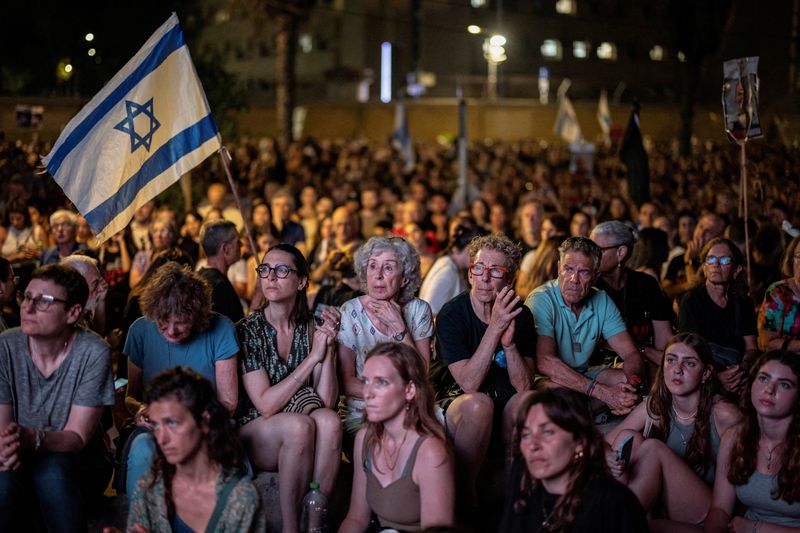[ad_1]
WASHINGTON (Reuters) -U.S. officials have considered negotiating a unilateral deal with Palestinian Hamas militants to release five American hostages held in Gaza if ceasefire talks involving Israel fail, NBC News reported on Monday.
It was not clear what the United States might offer Hamas in exchange, according to the report, which cited two current and two former U.S. officials

The United States says Hamas is holding five Americans who were taken hostage in the group’s deadly Oct. 7 incursion inside Israel, which prompted Israel’s massive retaliation. Officials are hoping to recover the bodies of three other Americans who were killed that day, NBC reported.
U.S. Secretary of State Antony Blinken, asked about the report as he left Cairo said, „The best way, the most effective way to get everyone home, including the American hostages, is through this proposal, is through the ceasefire deal that’s on the table right now.”
Any unilateral talks would be conducted through Qatari negotiators and would not involve Israel, the unidentified officials, who NBC said have all been briefed on the negotiations, told the network.
The officials said Hamas would have an incentive to reach such a deal with Washington because it would strain U.S.-Israel relations further and add pressure on Israeli Prime Minister Benjamin Netanyahu, who has been criticized at home for not doing more to get the hostages out.
Asked about the report, Israeli government spokesperson David Mencer told reporters that all countries should do whatever they can to get hostages out.
„We have called on all countries, all countries to put as much pressure on Hamas as they possibly can to release the hostages,” he said.

The Hamas attack killed 1,200 people and took some 250 others hostage, according to Israeli tallies. In response, Israel launched an assault on the Gaza Strip that has killed more than 37,000 Palestinians, the health ministry in the Hamas-run territory said in its Sunday update, and reduced the enclave to a wasteland.
Blinken is on his eighth visit to the region since the October attack, which triggered the bloodiest episode in the decades-long Israeli-Palestinian conflict.
[ad_2]
Source link

